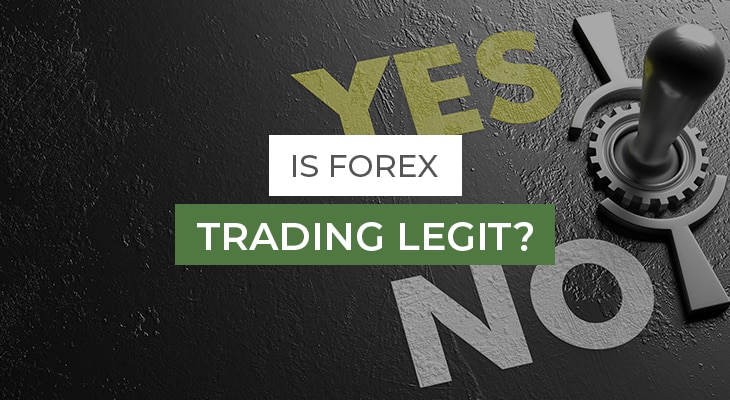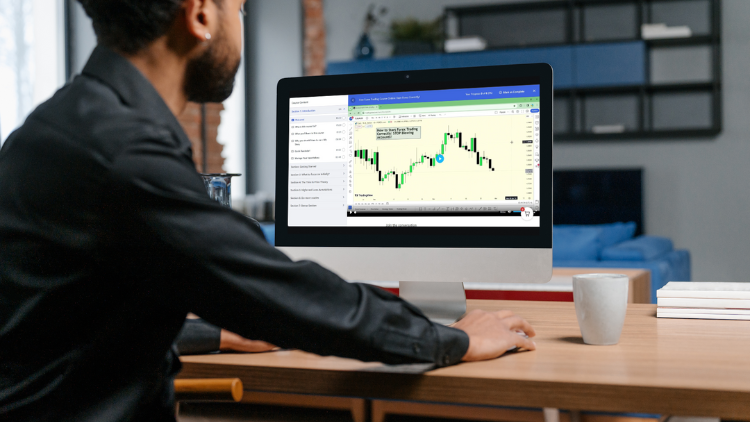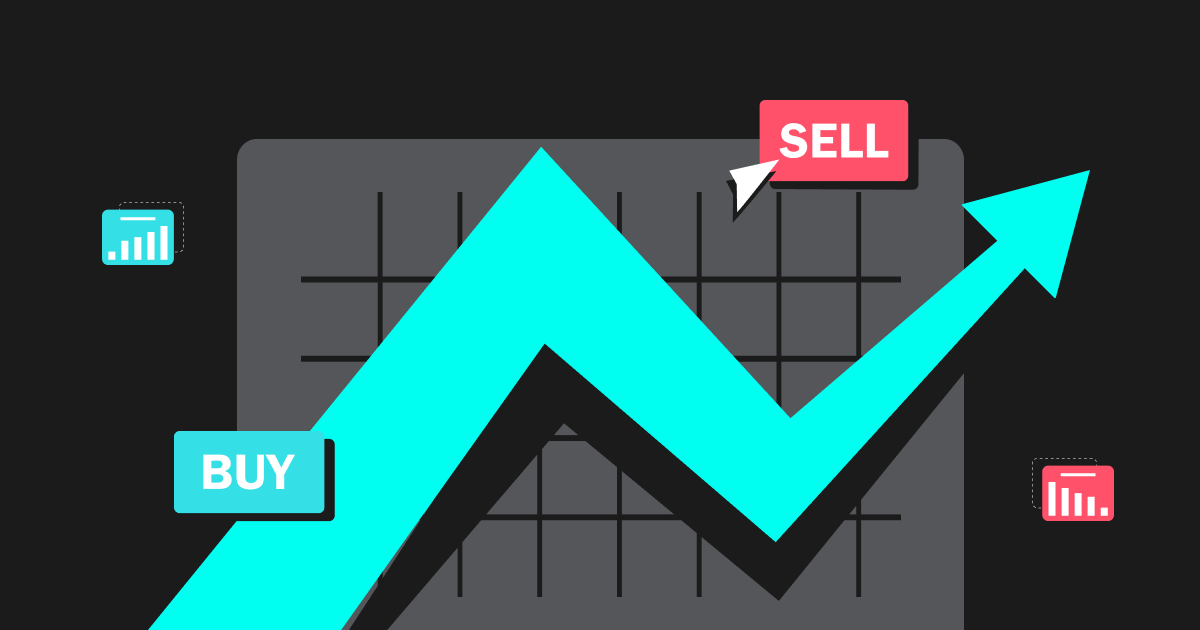In recent years, Forex trading has gained immense popularity as an investment option. However, with its rapid growth, many people have raised concerns about its legitimacy. Is Forex trading a legitimate way to make money, or is it just another risky venture? In this blog post, we will delve deep into the world of Forex trading to answer the question: Is Forex trading legit?

Understanding Forex Trading
Forex, short for foreign exchange, is the global marketplace for trading currencies. It operates 24 hours a day, five days a week, and involves the exchange of one currency for another with the aim of making a profit. Unlike stock markets, the Forex market is decentralized, meaning there is no central exchange, and it is conducted electronically over-the-counter (OTC).
Forex trading primarily occurs in currency pairs, such as EUR/USD (Euro/US Dollar), GBP/JPY (British Pound/Japanese Yen), and many others. Traders speculate on the price movements of these currency pairs, aiming to buy low and sell high (or sell high and buy low). The Forex market is known for its high liquidity and volatility, which can present both opportunities and risks.
The Legitimacy of Forex Trading
- Regulated Brokers
One key indicator of legitimacy in the Forex market is the presence of regulated brokers. Regulatory bodies, such as the Commodity Futures Trading Commission (CFTC) in the United States and the Financial Conduct Authority (FCA) in the United Kingdom, oversee Forex brokers to ensure fair practices and protect traders’ interests. It is essential to choose a broker regulated by a reputable authority to ensure your funds are safe and that you are trading in a fair and transparent environment.
- Education and Training
Legitimate Forex trading is not a get-rich-quick scheme. It requires knowledge, skill, and practice. Many Forex brokers and educational platforms offer comprehensive training materials, webinars, and demo accounts to help traders build their expertise. Legitimate traders take the time to educate themselves and develop a trading strategy that suits their risk tolerance and financial goals.
- Risk Management
Forex trading involves risks, and it’s crucial to manage them effectively. Legitimate traders use risk management tools like stop-loss orders and take-profit orders to limit potential losses. They also diversify their portfolios to reduce risk exposure. Understanding and practicing risk management strategies is a hallmark of legitimate Forex trading.
- Transparency
Legitimate Forex brokers provide transparent information about their services, fees, spreads, and trading conditions. They do not hide fees or impose hidden charges on traders. Transparency is a crucial factor in determining the legitimacy of a Forex broker.
- Scam Awareness
Unfortunately, the Forex market has its share of scams and fraudulent schemes. Legitimate traders are cautious and skeptical of any promises of guaranteed profits or schemes that seem too good to be true. They conduct thorough research before choosing a broker or trading platform and are vigilant about avoiding potential scams.
- Realistic Expectations
Legitimate traders understand that Forex trading is not a guaranteed path to wealth. They set realistic expectations and are prepared for losses as well as gains. The Forex market can be highly unpredictable, and even experienced traders face losses at times.
- Continuous Learning
The Forex market is dynamic, and legitimate traders continuously update their knowledge and adapt to changing market conditions. They are aware that trading strategies that worked in the past may not be effective in the future. Staying informed and evolving with the market is essential for long-term success.
Conclusion
So, is Forex trading legit? Yes, Forex trading is a legitimate financial market where participants can trade currencies for profit. However, like any investment, it comes with risks, and not everyone who enters the market will succeed. Legitimacy in Forex trading is determined by factors such as regulation, education, risk management, transparency, and a realistic approach to trading.
To succeed in Forex trading, it is essential to choose a reputable and regulated broker, invest in education and training, practice sound risk management, stay vigilant against scams, and always be willing to learn and adapt. While the potential for profit is real, it’s crucial to remember that Forex trading is not a shortcut to wealth, and success requires dedication, discipline, and continuous improvement.





 Pipstak
Pipstak 




